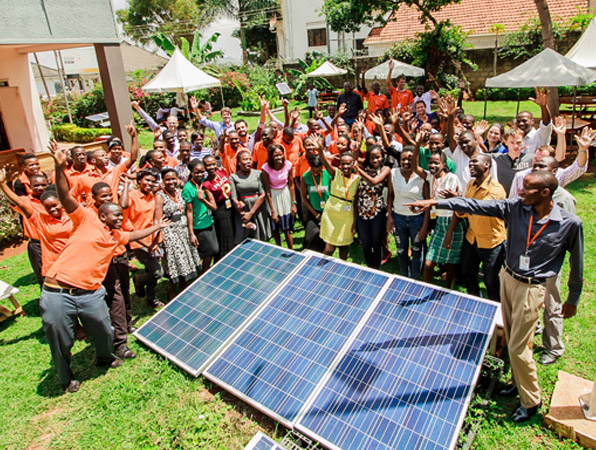- African microgrid company PowerGen has closed its series B funding round with a big injection of cash from Shell New Energies, the renewables arm of the fossil fuel giant which made headlines recently related to its lobbying activity in the EU.
- The microgrid developer did not reveal how much cash had been raised but said it would be sufficient to bring power to one million people in sub-Saharan Africa.
- The move by Shell comes weeks after German small solar system provider Mobisol was acquired by French utility and fossil fuel company Engie.
An estimated 600 million people in sub-Saharan Africa live with either limited access to electricity or none at all. Some 80% of the affected communities live in rural areas where grid connection is deemed prohibitively expensive by local utilities.
Huge market
That has left a significant opportunity to several solar providers, ranging from small scale grid developers such as PowerGen to sellers of solar lanterns and single-panel solar home systems.
PowerGen claims to have pioneered the deployment of solar microgrids as a private utility in Africa. Founded in 2011 and having finished its series A funding round in 2016, the company established itself in Kenya, Tanzania, Sierra Leone and Nigeria. Its leading investors at the time were Dutch investor DOB Equity and Vancouver-based AHL Venture Partners. Since 2016, the company has reportedly deployed its solutions in 120 communities, benefiting more than 70,000 people in eight countries.
PowerGen says it provides the full value chain of microgrid building, including preliminary consulting; engineering, procurement and construction services; customer management; and operations and maintenance services. The company also offers its expertise for commercial and industrial PV projects.
Other funders
This latest funding round saw Shell New Energies become PowerGen’s primary stakeholder. The other PowerGen backers were the U.S.-based philanthropic Omidyar Network of eBay founder Pierre Omidyar; fellow U.S. impact investor Acumen; London-based Renewable Energy Performance Platform; the EU-funded Electrification Funding Initiative; Japanese conglomerate Sumitomo Corporation, DOB Equity and Micro-grid Catalytic Capital Partners.
“I am happy that Shell will be supporting the next chapter in PowerGen’s exciting journey towards meeting the electricity needs of more African customers,” said Brian Davis, VP for energy solutions at the oil and gas major. “We see that PowerGen’s local experience, capabilities [and]growth to date make it well positioned to serve the expanding African decentralized power market. The form is a key part of our growing energy access business as we move towards Shell’s ambition to provide a reliable electricity supply by 2030 to 100 million people in the developing world.”
In January, oil industry charitable institutions Shell Foundation and the Rockefeller Foundation helped establish the Cross-boundary Energy Access fund (CBEA) to finance mini-grid deployment. The aim was to unlock US$11 billion of funding to bring electricity to 100 million people in sub-Saharan Africa. In July, the CBEA announced its first investment, of US$5.5 million, for the development of 60 mini-grids in Tanzania. That fund was tasked to PowerGen with the developer mandated to sell on the resulting infrastructure to recycle the capital invested in their deployment.
Author: Marian Willuhn
This article was originally published in pv magazine and is republished with permission.















